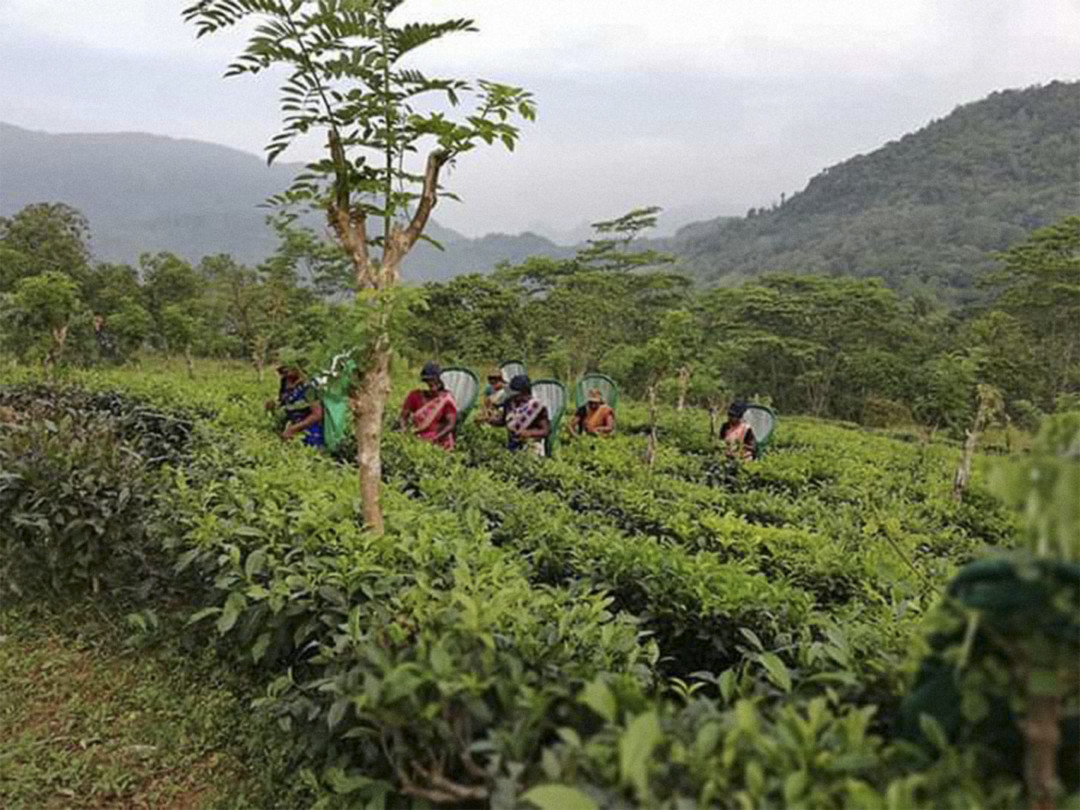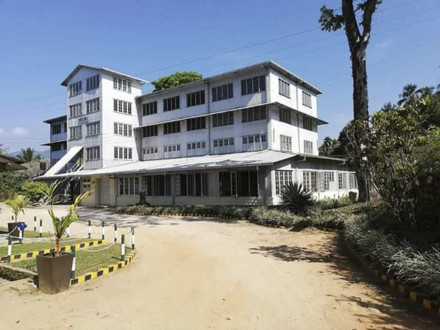5 July 2013
Deraniyagala, Sri Lanka
Nihal Perera
Profession
Private Sector
Motive
Exposure of illegal activity
Political dissent


Adolfo Olivas


Ahmed Divela


Amit Jethwa


Artan Cuku


Babita Deokaran


Bayo Ohu


Berta Cáceres


Bhupendra Veera


Bill Kayong


Boris Nemtsov


Boško Buha


Chai Boonthonglek


Charl Kinnear


Chut Wutty


Chynybek Aliev


Cihan Hayirsevener


Daphne Caruana Galizia


Darío Fernández


Derk Wiersum


Deyda Hydara


Édgar Quintero


Edmore Ndou


Edwin Dagua


Federico Del Prete


Fernando Villavicencio


Gezahegn Gebremeskel


Gilles Cistac


Habibur Mondal


Igor Alexandrov


Jacob Juma


Ján Kuciak


Javier Valdez


Joannah Stutchbury


José Ángel Flores


Jules Koum Koum


Kem Ley


Luis Marroquín


Mahamudo Amurane


Marcelo Rivera


María Elena Ferral Hernández


Marielle Franco


Milan Pantić


Milan Vukelić


Muhammad Khan


Nelson García


Nihal Perera


Oliver Ivanović


Orel Sambrano


Perween Rahman


Peter R. de Vries


Rajendra Singh


Salim Kancil


Sandeep Sharma


Sikhosiphi Radebe


Slaviša Krunić


Soe Moe Tun


Victor Mabunda


Virgil Săhleanu


Wayne Lotter


Yuniol Ramírez


Zezico Guajajara
5 July 2013
Deraniyagala, Sri Lanka
Profession
Private Sector
Motive
Exposure of illegal activity
Political dissent
On 5 July 2013, Nihal Perera woke up, as he usually did, at the crack of dawn. He hoped it would be a productive day.
As the superintendent of Noori Estate, a sprawling tea plantation nestled in the mountains of Deraniyagala in Sri Lanka’s Kegalle District, one of Perera’s tasks involved gathering firewood from the estate’s reservation. But on that fateful day, when the 72-year-old set out with his guards to inspect the property and collect wood to supply the factory’s constant demand, a mob lay in wait to ambush him. Not only would they end up massacring him with shaving knives, swords and poles, but they would go on to display his flayed, naked body across town in the back of a pickup truck, in broad daylight.
Perera had been at odds with his murderers for many months leading up to his death. The mob was led by the chairman of the Deraniyagala municipality, Anil Champika, also known as Atha Kota (Sinhala for ‘short hand’ – allegedly after he lost his left forearm when a homemade gun he was carrying went off by accident).
Champika and his nephew, Amila Wijesinghe, had taken control of Noori Estate, grabbing the assets and living lavishly off the profits. Political patronage and the backing of members of the ruling Sri Lanka Freedom Party allowed Champika to plunder the estate with impunity; even the police were afraid to intervene. Perera, however, fearlessly battled the gang’s pilfering of the estate on behalf of the workers, who for generations had depended on it.
According to IP Silva, one of the police officers who investigated Perera’s murder, Champika and his mob had already assaulted the estate superintendent in February that year after he had protested against the gang’s monopoly of supplying firewood to the factory. Perera’s leg was fractured in the assault and he was threatened with a warning never to come back. After his wound had healed, however, Perera returned to the estate, under the protection of security guards assigned to him by Walter Bay, the American company that officially owned Noori, vowing to protect it.
On 5 July, at 9 a.m., Perera alighted from his pickup truck for a routine inspection of the estate, while two of his guards waited in the vehicle. It was then that Wijesinghe led a gang towards the parked vehicle. Perera, realizing something was amiss, ran for cover in a nearby abandoned house, while onlookers began to throw stones at the mob of nearly 15 people, at great personal risk, in an attempt to get them to disperse.
A man who wished not to be named revealed that he was stripped naked, tied to a lamppost and lashed incessantly because he had thrown stones at Champika’s men. ‘They told me I would be freed if I gave them my sister. I refused. I was tied to the lamppost from 10 p.m. that night until 10 a.m. the following morning,’ he said.
According to testimony by an estate worker, one of Champika’s men hit Perera on the head with a steel pole. As he fell to his knees, Perera was attacked with a sword. He was then taken to the officers’ quarters, where the mob took turns beating him with metal poles and attacking him with sticks and swords.
Another worker, who survived the assault, said that Perera, who appeared lifeless, was then hauled into his own car. When his guards were made to get into the same vehicle, they saw that the superintendent had been beaten senseless and would probably not survive the rest of the ordeal. The three men were then driven to a more isolated location, about 500 metres from the estate. On their way, the mob stopped at a barber shop and took some sharp shaving knives.
Although Champika had planned the attack, he came only for the kill. He ordered his thugs to continue assaulting Perera. ‘Sir was groaning in pain, it was hard for us to watch, because there was nothing we could do,’ one of the estate workers testified. When Champika and Wijesinghe were satisfied with the work the mob had done, they left the scene, threatening the workers not to report the incident to the police. Thus many of the witnesses who eventually testified before the courts said that they had intentionally omitted parts of their initial statements to the police out of fear that they would suffer the same fate as Perera.

Workers at the Noori Estate tea plantation

The factory at Noori Estate, where Perera was the superintendent
Although the officers of the Special Task Force, a commando wing of the Sri Lankan police, were swiftly deployed to ensure that the workers were not harassed, villagers say it took time and a lot of courage to ensure this, because of the hold Champika had over the area.
‘We feared for our lives when Atha Kota roamed freely. Girls would be jeered at on their way to school or when returning home. It came to a point where I could no longer send my daughter to school out of fear Atha Kota and his goons would abduct her. I would have no one to tell and nowhere to go to,’ said Mahaheshwari, a seamstress, describing Champika’s reign of terror over the isolated rural hamlet. ‘The entire village knew of what took place. But none dared to speak. We were scared the same fate would befall us.’
Mahaheshwari said that when Sri Lanka’s United National Party came to power in 2015, the new administration vowed to bring the perpetrators of Perera’s gruesome murder to book, which gave the workers and witnesses confidence to give evidence before the court.
Consequently, when the trial of Champika and 20 others accused of Perera’s murder began on 24 February 2015, there were some 72 witnesses in the indictment. A year later, on 25 February 2016, Judge Devika Abeyratne sentenced Champika, Wijesinghe and 16 of the accused to death in Avissawella High Court.
The murder of Perera and several others, including well-known politicians, journalists and activists, has brought to the surface the unacknowledged but well-known fact that crime and politics frequently operate hand-in-hand in post-armed-conflict contexts. This has become one of the key characteristics of Sri Lankan politics, where it is also not uncommon to find criminals operating with the blessing of politicians.
Although Perera had tried his best to safeguard the workers and the Noori Estate while he was alive, it was only through his death that the reign of terror ended in Deraniyagala.


20 July 2010
Gandhinagar, India
Amit Jethwa


15 October 2016
Mumbai, India
Bhupendra Veera


21 June 2016
Sarawak, Malaysia
Bill Kayong


11 February 2015
Klong Sai Pattana, Thailand
Chai Boonthonglek


26 April 2012
Koh Kong, Cambodia
Chut Wutty


5 May 2004
Bishkek, Kyrgyzstan
Chynybek Aliev


20 August 2000
Dhaka, Bangladesh
Habibur Mondal


10 July 2016
Phnom Penh, Cambodia
Kem Ley


16 October 2018
Haripur, Pakistan
Muhammad Khan


13 March 2013
Karachi, Pakistan
Perween Rahman


19 June 2018
India
Rajendra Singh


26 September 2015
Selok Awar-Awar, East Java, Indonesia
Salim Kancil


24 March 2018
Bhind, Madhya Pradesh, India
Sandeep Sharma


13 December 2016
Monywa, Myanmar
Soe Moe Tun